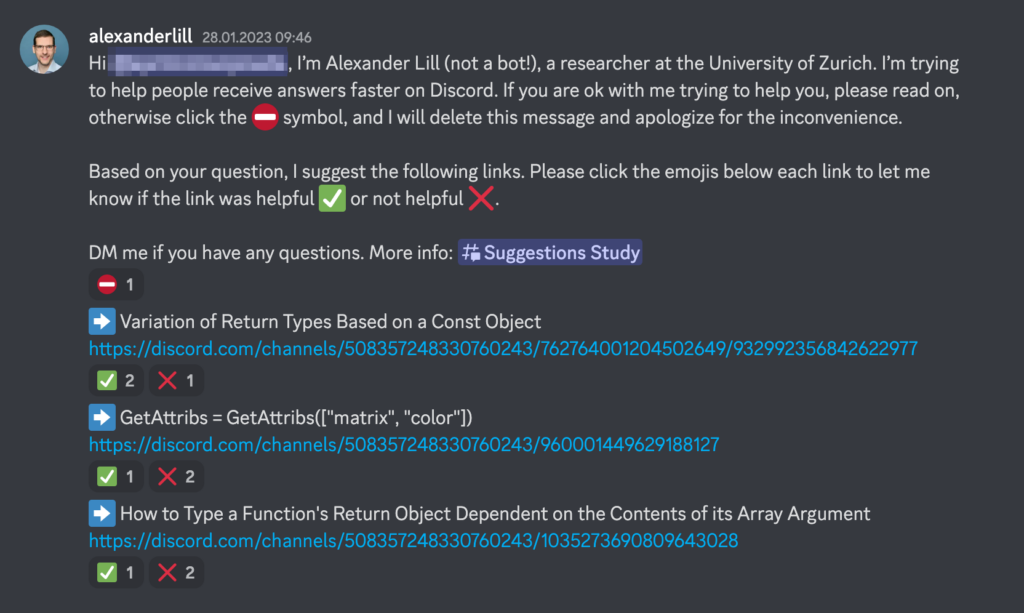02.04.2024 by Alexander Lill
HASEL @ ICSE24 in Lisbon
We are happy to announce that we will be presenting our research on answering developer questions on Discord at this year’s International Conference on Software Engineering, which is taking place in Lisbon, Portugal from April 14-20, 2024.
The presentation will take place within the “Human and Social Aspects, and Requirements 2” session on Friday, April 19th, from 11:00-12:30.
In addition, the publication “Supporting Web-based API Searches in the IDE Using Signatures” by Nick C. Bradley, Thomas Fritz and Reid Holmes will be presented in the “Human and Social 1” session on Wednesday, April 17th, from 11:00-12:30.





